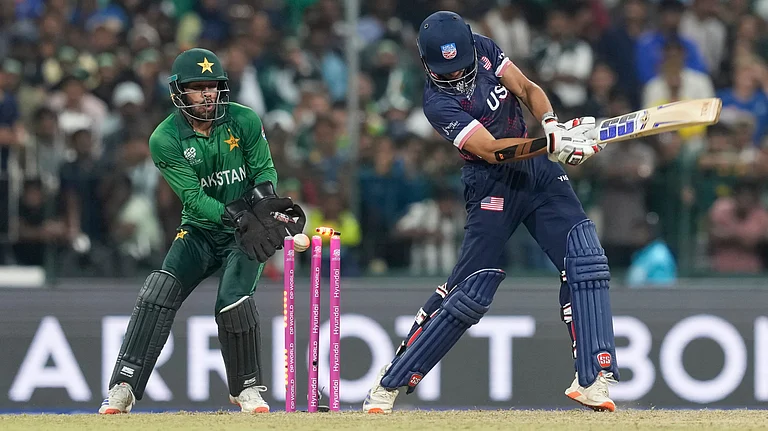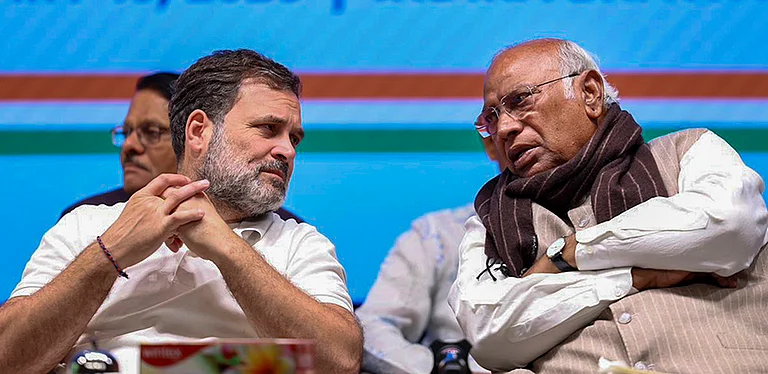ITALY or India? The choice would mean moving away from speaking Latin, thinking Greek and generally thumbing a nose at Rome. The Roman Catholic Church has cast off some of the Latin touches but unrest is in the air as a number of its priests push for a more homegrown face. "Do as the Romans do in Rome, not in Asia" is a line that the Vatican is likely to hear more frequently as a section of Catholic priests in India and across Asia question Rome's domination of Asia's churches. The message is loud enough to reach Rome where a special assembly, or synod, for Asia is underway. It is part of a series of continental synods convened to provide a vision for the worldwide Church as it crosses into the third millennium.
The Asian synod, which began in Rome on April 19 and will go on till mid-May, proceeds on a theme chosen by Pope John Paul II: "Jesus Christ the Saviour and his Mission of Love and Service in Asia...that they may have life and have it abundantly." The instrumentum Laboris, or the Vatican's working document in preparation for the synod, describes this as most appropriate for Asia, especially in the context of its plurality of religions and cultures and the variety of socio-economic and political situations.
But in India as well as in other countries in Asia, the Vatican's assessment and its concerns do not appear to have gone down well with everyone. Most of the criticism about the Vatican's lack of awareness of Asian ground realities is prefaced with a basic question: why should a synod on Asia be held in Rome? The Vatican began the exercise about a year ago, with a background paper called the The Lineamenta (a preparatory document) followed later by another paper called Instrumentum Laboris (meaning Working Document).
This has prompted a reaction from the Catholic Priests Conference of India (CPCI), a grouping of some 500 priests who don't always accept the official line. The CPCI has expressed regret that the synod is not held in Asia amid its colours and smells, tears and cries; that its processes are not mainly in Asian hands. The statement follows a three-day meeting jointly convened on April 17 by the CPCI and the Forum of Religious for Justice and Peace, a body which includes the laity. The meeting in Bangalore concluded two days before the synod began and the CPCI statement is bound to have reached Rome via the Internet or through the associations emissaries.
The prelude and proceedings of the synod have been criticised in a manner quite alien to the traditional and highly centralised Catholic church. "For a start, the synod was suddenly preponed, from its scheduled dates in October to May. This left no time for reflection and assessment of even the initial documents put out by Rome, let alone time for local groups to meet, discuss and set the agenda," says Father Allwyn De Silva, Mumbai-based president of the CPCI. "For so many years the Church has been dominated by the West. Like the economy. The sudden preponement and hurry could be fear on the part of Rome of the growing independence and self-reflection in the churches of Asia."
The CPCI is stronger in its criticism of special assemblies hurriedly put together and carried through which is seen as prompted by some anxiety and fear. The CPCI raised several points of criticism of the synod, preparatory documents put out for it by the Vatican and Rome's view of Asia. To quote the association's conclusions:
The organisation also asks the Vatican for an explicit condemnation and rejection of the West's favourite economic system with no regard to people. It seeks a re-examination of the role of international financial bodies in precipitating the economic crisis and has called for a total elimination of weapons of mass destruction so that resources devoted to this cult of death can be redeemed and diverted to the deprived.
The call here is for an Asian church which will help build alternative economic, political and social systems inspired by spiritual values from the liberative religious heritage of the continent; that will condemn American military presence in Asia. These priests seem to be highlighting all that is taboo in the Catholic world when they demand an Asian church that will denounce repressive and unjust laws relating to marriage, family planning and divorce.
The voices of protest have not come from Indians alone. The official response of the Japanese Church, for instance, has been highly critical, with special response to the preparatory document issued before the synod. The document, which is either in English or French, took the Japanese three months to translate. And having done so, the Japanese bishops found that the questions therein were composed in the context of Western Christianity and were not locally relevant. The Japanese deemed dangerous the standard of evaluation of evangelisation if Rome meant that it should be equated with the number of baptisms.
Their counterparts in China are not attending the synod—in any case they have a national church with in-house controls. The Chinese, once criticised in ecclesiastical circles, are now coming in for praise. The critics of the synod see it to be a clear case of looking at Asian realities through European eyes.
But dissent in India is rather restrained though it is growing. The Catholic Priests Conference of India is just one grouping in a large and well-organised set-up of the Catholic Church in the country. The majority still stick to the official line and give no quarter to complaints and criticism. But it is clear that increasingly more voices are being raised in protest. These voices are not always loud and vociferous.
Says Father Rudolf Heradia, director of the Social Science Centre at St Xavier's College, Mumbai: "Each Church must be a form of expression of the local faith. It must bring unity in diversity. The role of the Vatican has been a symbol of unity. Unfortunately, the Vatican has also become more and more an administrative centre."
Father Paramananda Divarkar, a respected senior who taught philosophy and psychology of religion, identifies the root of the problem as centralisation. Says he: "Christianity was born in Asia, and India was one of the first countries to welcome it. But its main movement was towards the West. The shape and size of the present Catholic Church is closely linked with European colonial expansion. Inevitably, the Church was influenced by the successful formula of western imperialism—namely centralised control and strict conformity. This has led to many tensions in the Church and they are particularly in evidence at every synod."
It was Father Divarkar who first raised questions when he wrote in the Catholic journal Vidyajyoti in response to the Vatican's first paper on the Asian synod, the Lineamenta. He noted: "The synod should seriously consider what Mahatma Gandhi and other Asian leaders have said, in one way or another. Jesus as he appears and speaks in the gospel is not the problem; the problem is the Church and the Christianity it has evolved." He went on to argue that "what is clear from history is that as long as the present Catholic Church, with its intricate structure and centralised control, claims Asia as occupied territory, the Saviour's mission will not progress on the very continent where Jesus was born and died." But is Rome listening?


























